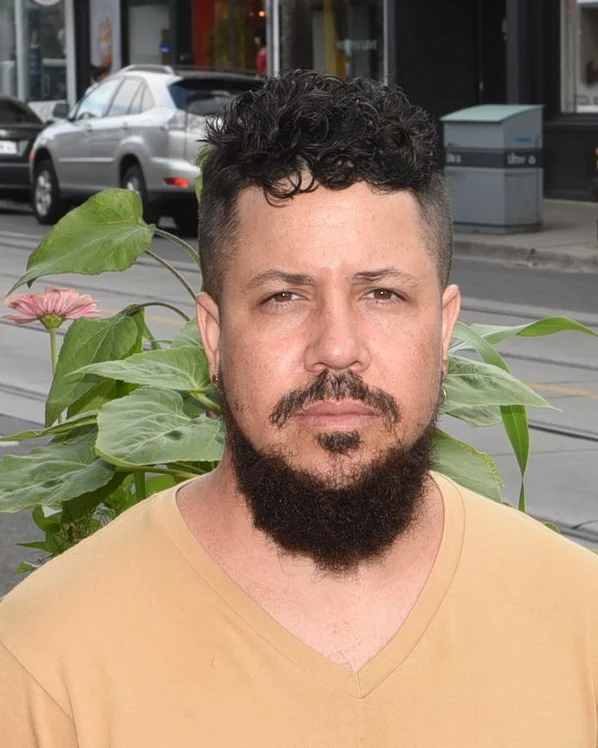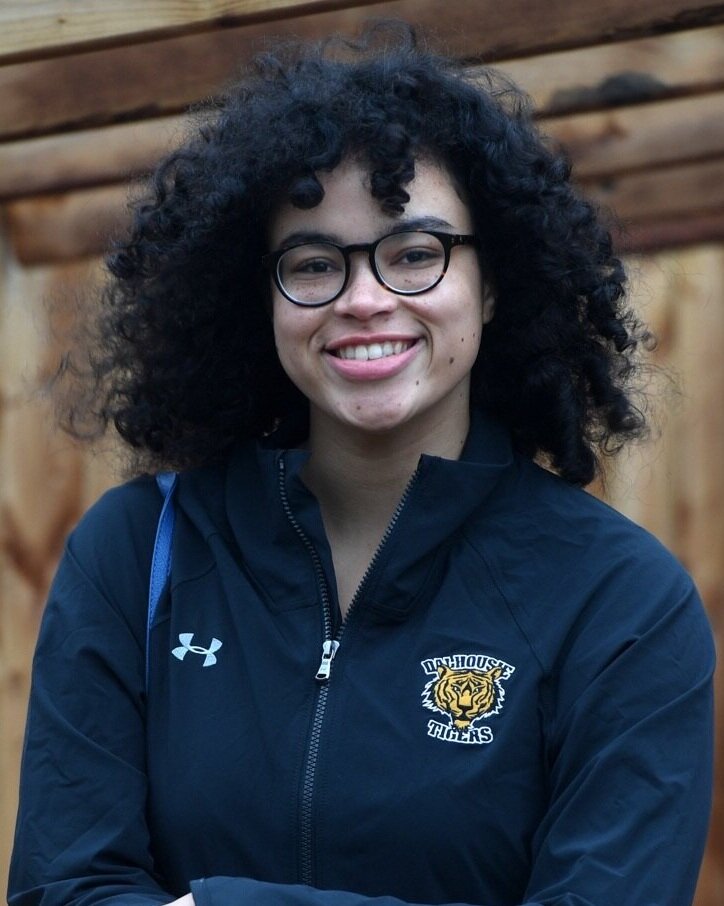Siblings are university professors at Dalhousie University
August 23, 2019
Rarely do siblings end up teaching at the same university at the identical time.
Not only are Drs. Chike and Asha Jeffers in the Humanities building at Dalhousie University in Halifax, but their offices are just a few metres apart.
He has been there since 2010 while his sister, who was a Faculty Fellow for two years at the University of King’s College in Nova Scotia, joined Dalhousie – which celebrated its 200th anniversary in 2018 -- last month.
“This is such a wonderful blessing,” said Chike who is an Associate Professor of Philosophy. “It really felt like a dream came true when she got the King’s job because she has two nieces and a nephew here. I thought we would have her for three years (that was the length of the contract she signed) and if we had her for less, it would still be a good thing because it meant that if she left early, she got a good tenured teaching job somewhere. I never in my wildest dreams thought she would end up at the same university I am at.”
Asha was fortunate to get out of her contract with one year remaining.
“I was well positioned to apply, having already met some of the people in the department by just being in Halifax,” said the Department of English, Gender & Women’s Studies new faculty member. “It was very fortuitous for me to get in at Dalhousie because the academic job market is difficult to crack.”
Naturally, parents Francis and Denise Jeffers – immigrants from Dominica and Guyana respectively -- are feeling a sense of pride and accomplishment.
“My father was a great dad and I wanted to be even better than him in terms of raising our children and them having an African-centred perspective,” said the family patriarch who graduated with a Biochemistry degree from the University of Toronto in 1979 and is the founder of Visions of Science Network for Learning and the International African Inventors Museum curator.
Born in Trinidad, the late Nathaniel Jeffers was a Dominica Grammar School Principal and Acting Mayor of Roseau.
With an interest in becoming an actor or movie director, Chike switched majors in his third year of undergraduate studies at York University.
“While doing Philosophy courses, I realized that is what I wanted to do and not film anymore,” he said.
Asha, on the other hand, was considering becoming a high school teacher.
“In university, I got interested in the fuller set of things you get to do as an academic,” noted the University of Guelph undergraduate degree holder. “Teaching was a major draw, but I also thought it would be nice to do research, work in a university environment and not have to talk to people’s parents.”
After completing her Master’s in Cultural Studies/Critical Theory & Analysis at McMaster in 2009, she split two years travelling and developing English Language curriculum at Moonkkang Foreign Language Academy in South Korea before returning to Canada to do her Doctor of Philosophy in English Language & Literature/Letters at York University where she was also a graduate teaching assistant for six years.
“The experience of being in a different cultural context was really enriching,” Asha, who completed high school at R.H King Academy, said. “Writing curriculum, I think, made me a better teacher as it helped me think about organizing what I teach. Also, the more humans you meet, the better you are at understanding and dealing with them.”
Her dissertation, finished last year, explores the literary representation of the children of immigrants and her areas of teaching and research are 20th and 21st century literature and cultural production with a particular interest on texts that deal with issues of gender, race and migration.
“I am particularly interested in how second generation literature mobilizes the conventions of coming-of-age narratives, the relationship between myth, memory and history and the representation of inter-generational and intra-generational relationships to produce future-facing stories that suggest hope and possibility in trying times,” Asha explained.
Unlike his sister who completed her schooling in Canada, Chike did his highest level academic degree at Northwestern University in Chicago.
Interested in Africana Philosophy focused on the issues and experiences of Black people, he applied to 10 American universities.
“Given the demographics of Philosophy, the United States was the only place I knew that had people doing well with what I was interested in,” said Chike whose dissertation title was, ‘The Black Gift: Cultural Nationalism & Cosmopolitanism in Africana Philosophy’. “The only thing I was unhappy about was that I had to do the Graduate Record Examinations test required from graduate schools in the U.S. because I didn’t do math since in high school.”
Family friend and then York University lecturer Dr. Gervan Fearon helped him with his Math in preparation for the standardized test.
“I studied under him and will forever be grateful for that opportunity,” said Chike who had two job offers after graduating nine years ago.
He chose Dalhousie over the University of South Florida in Tampa Bay. Though wanting his wife and mother of their three children – Tina Roberts-Jeffers is pursuing a Computer Science degree – to have a significant say in the decision, Chike was interested in proving that Canadians could pursue Africana Philosophy studies at home.
“I wanted to change the fact that I didn’t know where in Canada I could have gone to study what I wanted to do,” said the Danforth Collegiate & Technical Institute 2000 graduate. “The decision had to do with wanting to establish more of a Black presence in Philosophy in Canada. I have a student (Tiffany Gordon) who, like me, did her undergraduate studies at York and her Master’s at McMaster like Asha and is now pursuing her doctorate at Dalhousie. It was the dream I had when I chose this job to make sure that someone interested in the kind of things I was interested in in terms of the Philosophy of Black people and our experiences have a place in Canada where they could go and pursue their highest degree in Philosophy.”
The siblings, who enjoy dancing like their father, are among hundreds of graduates of the African Canadian Heritage Association (ACHA) curriculum-based community program who have carved out successful professional careers.
Originally launched in 1969 as the Black Heritage Association, the organization underwent a name change in 1992 to preserve its unique identity following the establishment of several Black heritage programs across the city.
“The ACHA is essential to understanding how I got to where I am today because the sense of identity and values I learned there is central to my work,” said Chike who was invited to deliver the keynote address at the ACHA’s 50th anniversary celebration last May. “I write about race and culture from a Pan-Africanist perspective and those who taught me at ACHA, like Veronica Sullivan, greatly shaped this perspective. More than being a program, the space provided a sense of community and you really felt cared for by the adults.”
Asha Jeffers (Photo by Ron Fanfair)
Asha remembers the organization being a key part of the community while they were growing up.
“It was just a great place for us to think about learning and our history and it helped to fill the gaps missing in the school system,” the occasional creative writer who enjoys soundtrack learning said. “At the ACHA, I did a performance of Sojourner Truth’s famous ‘Ain’t I a Woman?’ speech which I will be teaching this year.”
The former slave and abolitionist delivered the speech on the intersection between women’s suffrage and Black rights at the Ohio Women’s Conference in 1851.
Community and family have been integral in the Jeffers’ development.
“Both of our parents have undergraduate degrees and though they weren’t interested in becoming academics, they are passionate about learning,” Asha said. “Mom is a big reader whose love, words of wisdom and grammatical prowess got me through three degrees while dad has been promoting education through organizations and is always there for me when I need him. Auntie Jessie (King), who died just over a decade ago, was a teacher and she taught me how to read and was such a key person in terms of instilling our love of knowledge and our interest in education more largely. Our maternal grandmother (Evadne D’Oliveira was a Guyana Prize for Literature recipient who migrated in 1979 and died nine years ago) was a playwright and journalist in Guyana who did creative writing when she came to Canada and was very supportive.”
The only Black candidate in the 48-member Royal Society of Canada’s College of New Scholars, Artists & Scientists 2015 class, Chike said his parents made him feel valued and empowered.
“They expected excellence from us always,” the avid reader added.
Asha singled out award-winning novelist David Chariandy, who has a doctorate from York University, for his guidance and support.
“He was a role model for me when I was dealing with whether or not to do a Ph.D.,” the soccer enthusiast said. “He said I will support you if you want to do it, but it’s hard work and it is very likely you will come out without a job. He told me I have to know why I am going into it and I had to be prepared to accept the fact that I will not regret it if I don’t end up being an academic. That kind of straight talk coupled with support was really valuable for me.”
The siblings have a middle brother – Adom – who is bilingual, taught English in South Korea and France and is fulfilling a passion for travelling as an Air Canada flight attendant.







